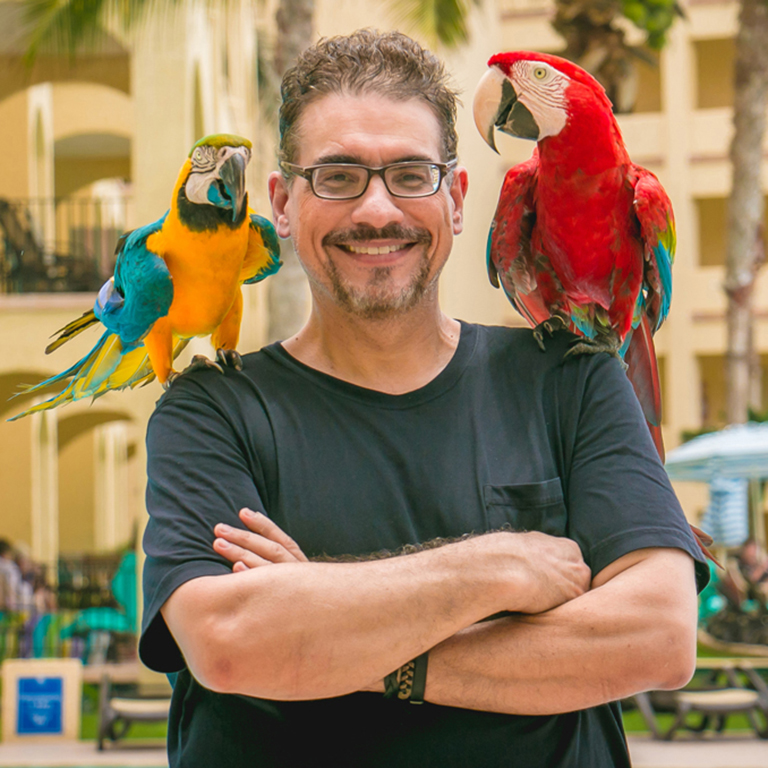When I met with Tony, I had just graduated from Earlham College with a double major in Music and Anthropology. Originally, I wanted to be a biologist like my mother, but an Introduction to Cultural Anthropology class grabbed my attention. It validated something about my own immigrant experience. Naturally, I chose musical projects for my papers, and this road led me to ethnomusicology. Tony met me at his office in Bloomington and had me follow him on a peripatetic walk through campus, as Aristotle may have once walked with his students through the Lyceum in ancient Athens, encouraging me to come study at IU.
After teaching jazz guitar in Spain for a year, I then submitted my application to ethnomusicology at IU and was accepted for the fall of 1989. Upon arrival on campus, and this is where the accidental part comes in, I was asked to declare a department. I said “ethnomusicology,” but as I soon learned, there was no such department. The program was team-taught by faculty from several departments. On my first week on campus I had pick one of them. Incidentally, Tony Seeger had just left to head Smithsonian Folkways Recordings, and I was stranded.
Someone suggested I register in the Folklore Institute, which offered more flexibility in the courses I could take and also a scholarship in the Archives of Traditional Music (ATM). So, I chose Folklore.
My first professor was Henry Glassie. His teaching style was like a storytelling session out of the Fairy Tales of the Brothers Grimm. I was initially upset and confused by his format, and did not understand it. However, in retrospect, many of Glassie’s stories came to relevance in my professional life, and one of his one-liners possibly got me a job I held for 13 years. That which bothered me most in his class ended up helping me.
At the end of my first year, I felt I may have made a mistake, and I was ready to pack my bags. My advisor, Ronald Smith, gave me some timely advice: try a summer internship in folklore. If you like it, then come back and finish school, and if you don’t then move on knowing that you gave it your best shot. I followed his advice and got a summer internship doing urban research in Chicago for an exhibit on Guatemalan Textiles at the Old Town School of Folk Music in 1990.
I returned to Bloomington for my second year determined to make this program work for me. I ran, unopposed, for president of the Ethnomusicology Students Association. At the time, the ethnomusicology students were very dispersed. I had only met a handful of them in my entire first year. After digging through old boxes of meeting minutes and collecting and reorganizing a list of current students, we distributed a membership list and reignited the ESA. We also fundraised and brought back a lot of the programming from years past. I ran unopposed for two more years. I thrived in this extracurricular activity.
In 1993, I was offered a job as Director of Community Outreach at the Old Town School of Folk Music. I took a comprehensive examination option and opted for a terminal M.A. to pursue this job, which I held for nearly 13 years. I produced and curated hundreds of programs. I learned to write grants and to speak in public. I also co-founded Sones de Mexico Ensemble, an award-winning, nationally touring non-profit organization specializing in Mexican folk music for 26 years. I have conducted independent folklore research documenting Latinx artists for arts councils in 12 states, and corrido songwriting workshops in at least as many states. I have served on the boards of several music organizations, and as a reader on public and private grants panels for 20 years.
I feel like a folklorist. I love the unique perspective that folklore brings to ethnomusicology. The orally transmitted lore I got in class from Henry Glassie, Ronald Smith, John McDowell, Sandy Stahl, Ruth Stone, and Dorothy Lee are still with me, and it continues to shape every aspect of my work. The moral of the story is “do what you do well and do it as well as you can to leave this world in better shape than you found it.”
Juan Dies, Fellow at the Chicago Community Trust (2009), United States Artists (2019), and Illinois Arts Council (2020), Grammy and Latin Grammy Award Nominee, and Distinguished Alumni at Earlham College. Co-Founder/Executive Director Sones de Mexico Ensemble.

 The College of Arts
The College of Arts